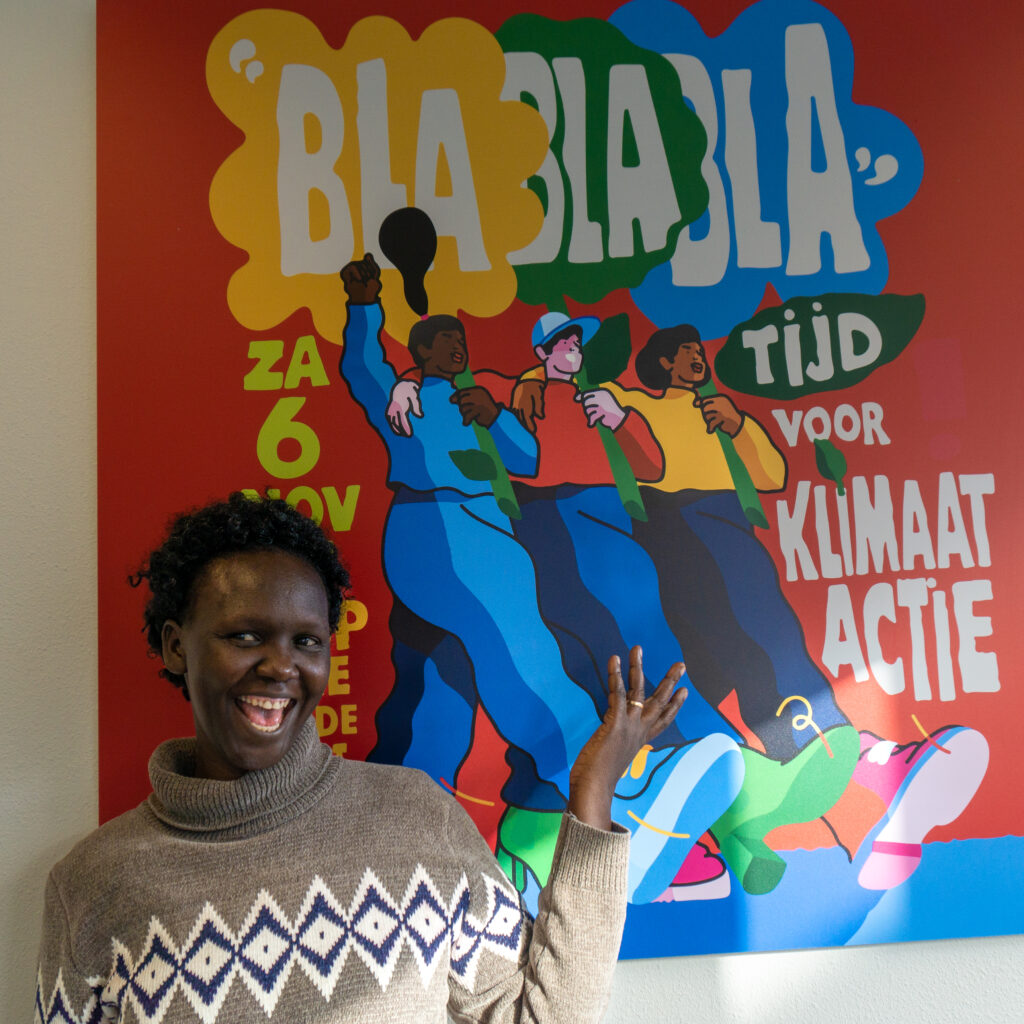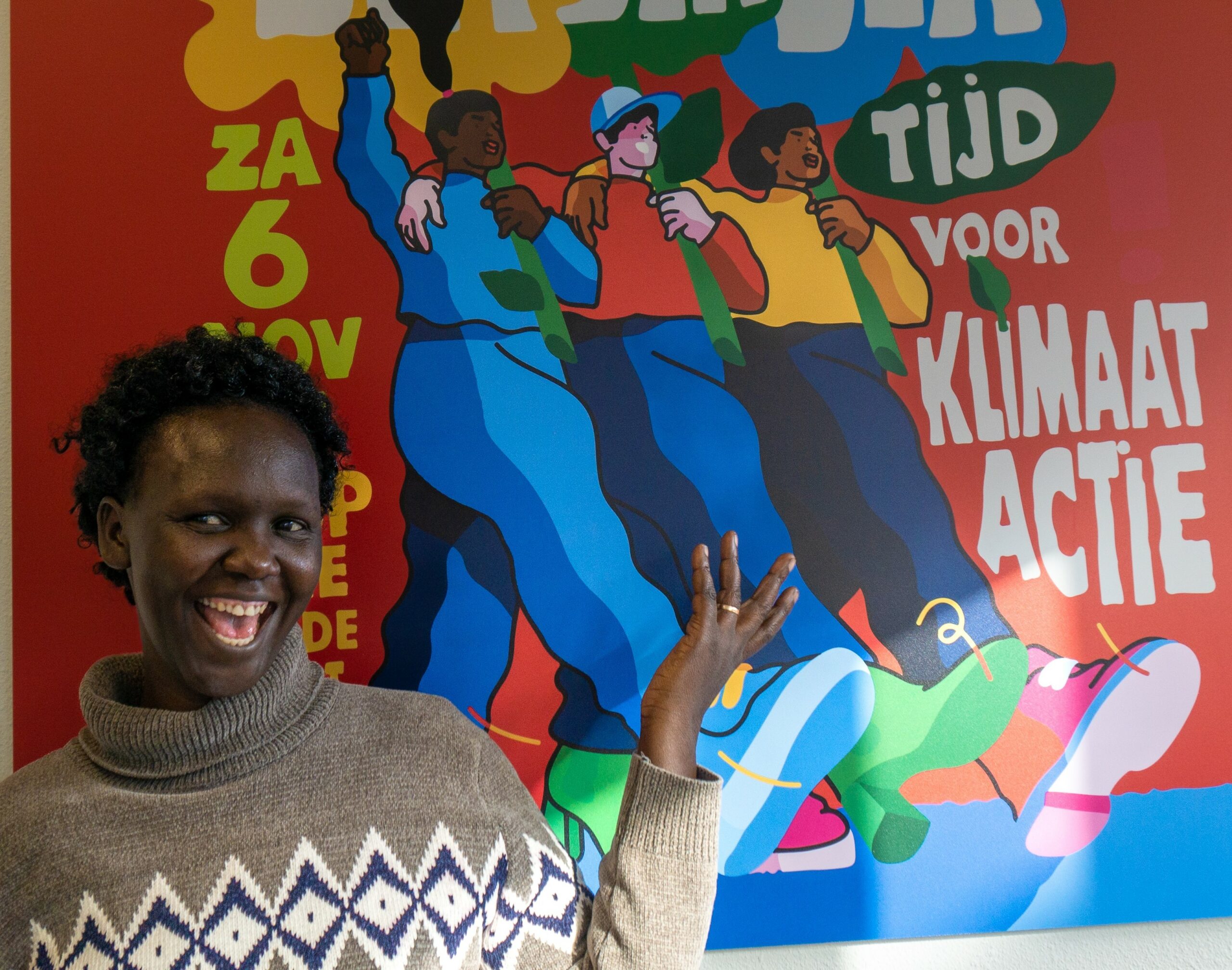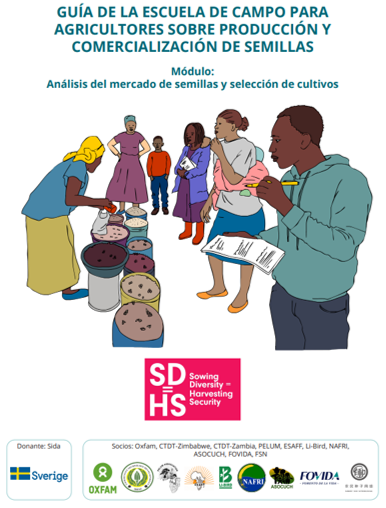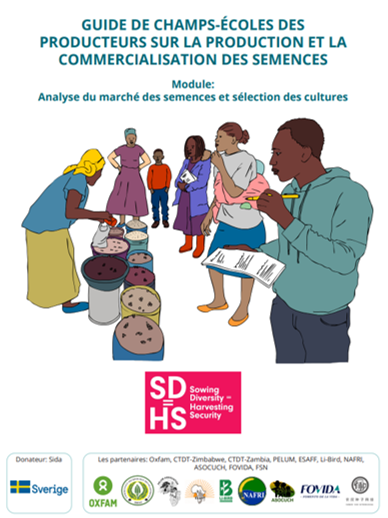“I get motivated when the farmers themselves show interest to share the knowledge they have, and when they are willing to integrate their knowledge with the knowledge we have.”
Anna Sofia Asingo is a passionate advocate for farmers and their rights. With 11 years of experience working with Community Integrated Development Initiatives (CIDI), a member organization PELUM in Uganda, Asingo has dedicated her career to improving the livelihoods of farmers and ensuring their voices are heard.
The SD=HS project inspires Asingo because it is interactive by design and involves the community. Anna Sofia has learned the different perspectives of farmers on their own seeds, and she is motivated by their willingness to share their knowledge and experience. She believes that farmers are a valuable source of information, and their local knowledge is practical and essential in helping implement the project. Another motivator for her is farmers identify their challenges and suggest how they want to be supported to overcome them.
On the issue of the access to quality seeds, farmers face bottlenecks that encourages them to work on their own farmer seed system, which is friendlier, more accessible, and affordable and can easily be adopted by other farmers. This inspires me!
Together with 6 colleagues form SD=HS, Anna Sofia participated in a week-long course on Smallholder Engagement in Seed System. Developed in a coalition made of Wageningen University, the Norwegian University of Life Sciences, the Production Ecology & Resource Conservation and Oxfam Novib through the Sowing Diversity=Harvesting Security program (SD=HS).
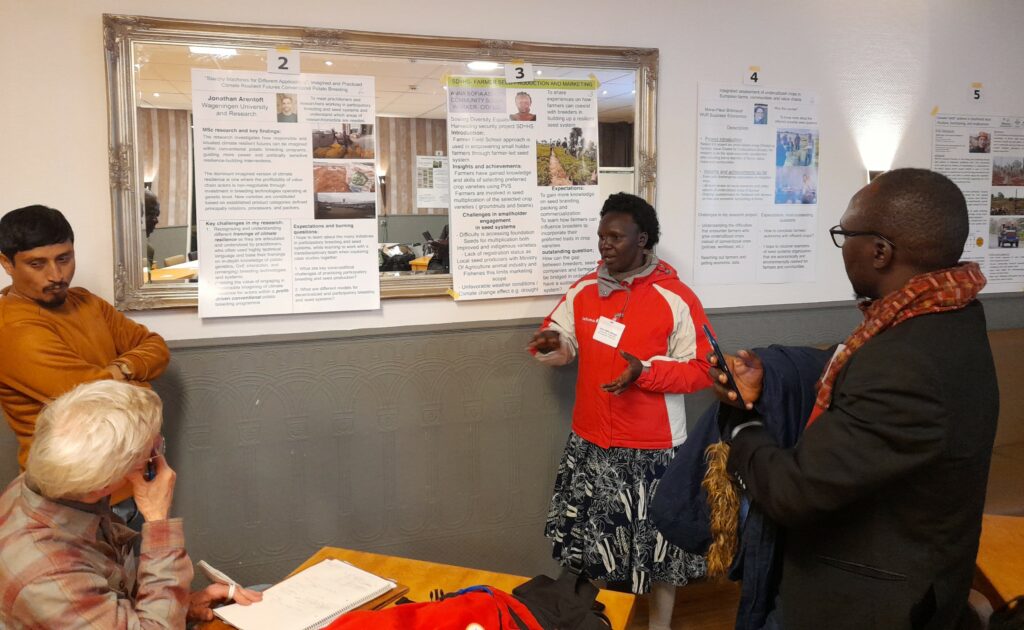
This training helped me to clarify to the breeders who develop seed varieties which they give to communities that they must get down to the community to ground their research. They must get to know the farmers’ perspectives and preferences.
The course aimed to bring the farmers’ seeds systems at the center. Participants compared the formal and informal seed system, where the informal systems are the farmers’ system because it is not a legalized or recognized. Asingo learned that it is important for breeders and scientists to get to know the farmers’ perspectives and preferences, rather than relying solely on theoretical knowledge.
“Breeders and scientists should share their knowledge with practitioners and communities.”
She believes that it is essential for breeders to work with farmers and build strong relationships to have a good seed system. For an efficient seed system benefitting all parties involved, breeders need feedback from farmers to determine which varieties do well, and which are less popular. With this feedback, breeders can go back to the breeding center to prioritize work on varieties that farmers adopt and improve varieties that are not meeting their preferences.
This is a long-standing problem where breeders only consider farmers as end users of the seeds they produce.Anna Sofia gives us the example of Uganda, where there are around 20 varieties of groundnuts but only a handful are adopted. What happens to the rest? They stay on the shelves of the stores. All of this because farmers were not consulted beforehand. Together, breeders and farmer can develop the best varieties for farmers.
This training helped me to clarify to the breeders who develop seed varieties which they give to communities that they must get down to the community to ground their research. They must get to know the farmers’ perspectives and preferences.
Asingo believes in the importance of building another bridge between community seed banks and gene banks. She shares that the national gene bank in Uganda holds few seeds. The gene bank should capture all the seeds and local food plants available in the country and make it available to everyone. This can only work if the gene bank creates a linkage with the community seed banks and the farmers, Anna Sofia explains.
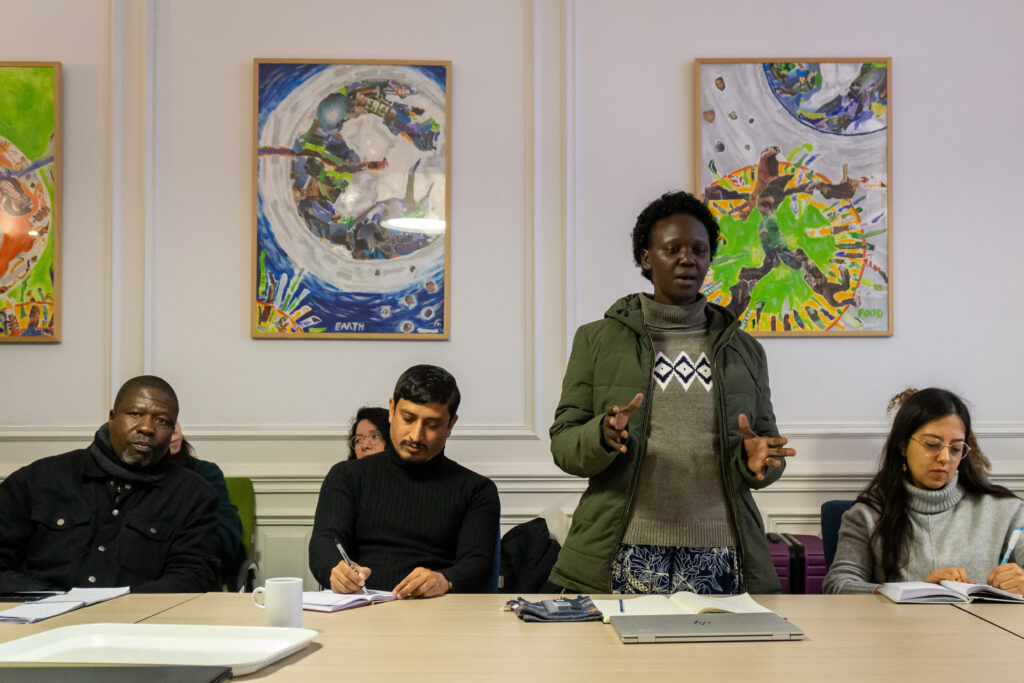
Institutionalization is also crucial in building a sustainable seed system, and Asingo sees the adoption of Farmer Field Schools as a positive step towards this goal. An important effort from partners in Uganda is the strengthening of a nationwide Farmer Field School network. A strong national network can act as a platform for the farmers to advocate for their seed’s rights, registration rights, for the recognition of indigenous seeds, for climate resilience and many more measures around agriculture. This organized platform would bring different stakeholders on board so that farmers can engage with them, like policymakers and seed companies for examples.
Finally, Anna Sofia wishes to appreciate the time we take as colleagues, with CIDI, PELUM and Oxfam to interact, exchange views, share experiences, and make use of each other and capacity building opportunities. “Learning never ends!”
